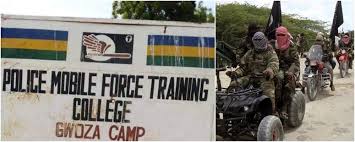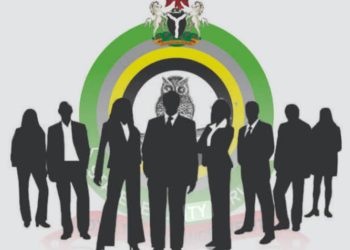When a Senator recently told Channels TV that there is no persecution or genocide against Christians in Borno and particularly in Gwoza, he denied the lived reality of thousands of people he does not know. We are indigenous Christians of Gwoza Local Government Area. What follows is not hearsay or political rhetoric; it is our testimony, a painful record of loss, displacement and erasure.
Gwoza once had a thriving Christian presence. Before the insurgency, there were more than 176 large church buildings across the local government. Today, 148 of those churches were burnt and lie in ruins. Entire Christian neighbourhoods in Gwoza East and West were flattened; in many places, every Christian home was destroyed.
The human toll and destruction are detailed and specific. In Gwoza West alone, 74 towns and villages were sacked, 36,946 families displaced, 99 churches were destroyed, and 292 people were killed in September 2013. In Attagara, 13 churches were destroyed, 1,738 families displaced and 140 Christians killed by 3 June 2014.
By 9 August 2014, 2,013 Christian houses and 28 churches were destroyed, and 102 Christians — including three pastors — were killed in Gwoza town, Kamba and Gharza. The total pastors killed by insurgents in Gwoza local government was 12. In other Christian communities within Gwoza, such as Ngoshe, Bokko, Pulka, Limankara, Ngoshe-sama, Barawa and Gwo-North, both the loss of life and the physical destruction exceeded local expectations.
Reconstruction has been highly uneven. Hundreds of Muslim homes have been rebuilt and thousands rehabilitated on their original land, while virtually no Christian homes have been restored. Of the thousands of resettlement houses built, we know of only three beneficiaries who are Christian. At Gwoza General Hospital, there used to be a Mosque and a Church side by side — a symbol of unity for forty years. Boko Haram damaged both in 2014. During rehabilitation, the Mosque was included, but the Church was bulldozed and replaced by a solar farm. Our repeated appeals went unanswered. We are left to ask whether this speaks of leadership, a religious bias, or both.
The losses are not only material. Christian Religious Knowledge is not taught in government schools across our local government. Christian communities have been denied land for places of worship; mosques can be built freely. Before Boko Haram, civil service representation in Gwoza was roughly 5 percent Christian to 95 percent Muslim despite an almost equal population. Muslims handled almost all political offices and virtually no elections were honest, free elections in Gwoza have long been absent.
The human cost is staggering. Today, about 107,000 Gwoza Christians are scattered in 17 internally displaced persons camps across several Nigerian states and in the Minawao refugee camp in Cameroon. Another 50,000 are squatting with relatives in towns and cities across Nigeria. Many have lived as IDPs or refugees for more than a decade with little or no government assistance and no realistic prospect of returning home.
This pattern — destruction of churches, removal of Christian families, and official silence or inaction — raises an unavoidable question: Is there a systematic attempt to erase Christians and their heritage from Gwoza?
Institutional silence compounds the pain. We are members of the Christian Association of Nigeria (CAN), and as such, we ask: Has CAN been compromised? Has it become a passive observer, unwilling or unable to defend its people? Inaction by Christian bodies deepens wounds and erodes trust. We are also hurt by recent high-profile denials of persecution from some public office figures who should know better; such statements made on both national and international TV stations amplify the silence and discourage survivors.
To those who dismiss or minimise these crimes: If Christians are accused of being perpetrators, who are the suspects? Do attackers call the name of Jesus while killing? The abduction of Leah Sharibu — held for refusing to renounce her Christian faith — remains a stark symbol of our failure to protect the innocent. In Gwoza, Christians have never waged attacks on Muslims; churches were being destroyed even before the insurgency consolidated. These are isolated incidents but part of a broader, violent pattern that must be acknowledged and investigated.
We plead for truth, accountability and action.
To CAN and all Christian bodies: your people are suffering. Will you continue to stand silent? Will you trade the lives and dignity of the displaced for political appointments or other gains?
To the Nigerian government: fulfil your constitutional duty to protect every citizen irrespective of faith. Conduct independent investigations, prosecute those responsible for targeted attacks, ensure equitable reconstruction and restore the right of displaced Christians to return home with dignity and security.
To the international community, including the United States and global human-rights bodies: do not ignore what is happening in Nigeria’s northeast and north-central regions. Independent investigations, humanitarian assistance targeted to displaced Christians (and all victims), and diplomatic pressure for accountability are necessary.
To Christians and people of conscience worldwide: pray, speak, advocate and act. Survivors in camps and ruined communities in Gwoza and beyond need sympathy — they urgently need attention, compassion and a pathway to rebuild their lives and heritage.
This is our testimony as indigenous Christians from Gwoza. The blood crying out for justice flows from our lips and our hearts. For too long, things have only worsened while we hoped things would change. They have not. The time for denial and silence is over. Please talk about it until the world knows.
For: Gwoza Christian Community Association (GCCA)
Rev. Dr. (Arc) Ayuba John Bassa – GCCA National Coordinator
Rev. Filibus K. Goma – (Former EYN President) Chairman BOT GCCA









